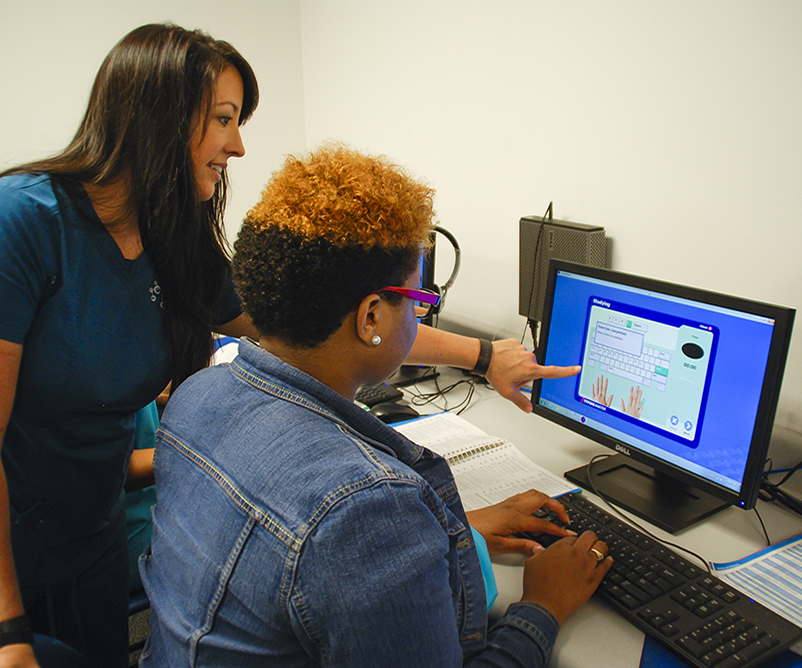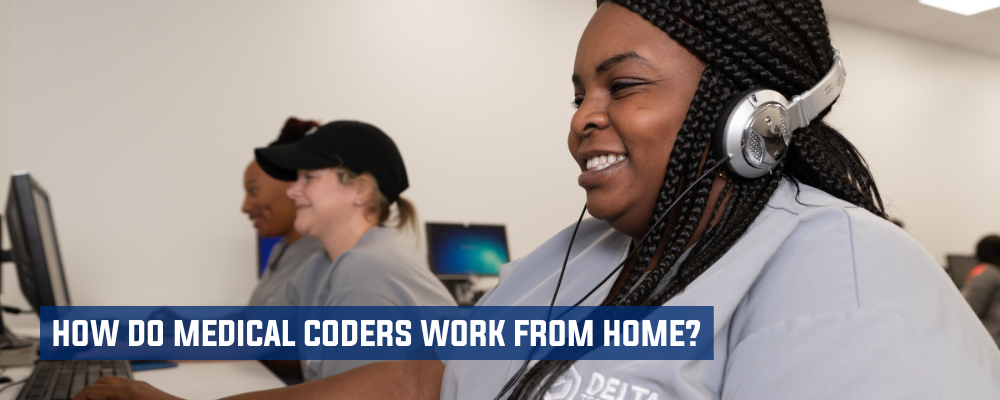
Looking to start a medical coding career? Do you have questions about the industry? Is this career path right for you? Medical coding is an allied health career with a short timeline for training when compared to a four-year degree.
What Is Medical Coding?
Medical coding is similar to translation. You will transcribe medical reports, doctor’s diagnoses, prescriptions, and other medical details into a series of codes. The notes you will be transcribing are an essential part of the record keeping from a medical exam or visit.
Why Are Medical Coders Necessary?
Medical coders play an important role in helping to streamline illness reporting, including tracking the prevalence of certain diseases and which treatments are effective. The codes are regulated by the Center for Disease Control (CDC) and are uniform among all medical facilities, which allows the data to be efficiently transferred across the U.S. Medical coding is also sent to insurance companies in order to secure proper payments.
What Does a Medical Coder Need to Know?
As a part of their training, medical coders learn several different categories of coding. International Classification of Diseases (ICD) was created by the World Health Organization (WHO) in the 1940s and has since been updated multiple times. The ICD code represents doctors’ diagnoses and patients’ conditions. These codes will help determine standardized and acceptable treatments, using prior patient cases and the history of illnesses nationwide.The Current Procedure Terminology (CPT) is the code that represents most of the medical procedures that occur in a medical office. These codes are updated annually and regulated by the American Medical Association (AMA). The CPT code set is comprised of five digit numeric codes that include three categories, encompassing most facets of medical care, quality assurance, and ongoing research. The Healthcare Common Procedure Coding System (HCPCS) is developed by the Centers for Medicare and Medicaid Services (CMS) and maintained by the AMA. The HCPCS is responsible for identifying services, procedures, and equipment that aren’t represented by CPT codes.
A Day in the Life of a Medical Coder
A medical coder can spend most of their day at the computer, where they review documentation to understand diagnoses, procedures, and abstracts including the physician’s name, dates, and other important details. They then translate those notes and records into code. Their day may conclude by returning unprocessed documents.For medical coders it is important to meet deadlines, so records don’t lag significantly, and to develop a daily routine of reading, note taking, assigning codes, and data entry.A medical coder could work with a team of coders, handing off work to the next coder when their shift ends, or they may work alone.Coders who work in large facilities may focus on medical specialties, while coders who work in smaller offices may have a broad range of patients and, therefore, a wide range of medical conditions to translate.
Is Medical Coding for You?
Becoming a medical coder begins with enrolling in a program like the Medical Coding Specialist Program at Delta Tech, learning the detailed code-sets, and passing the Certified Professional Coder exam. These steps, when completed successfully, will prepare graduates for a career as a medical coder, where they may work in a hospital, doctor’s office, or at home. If you think medical coding is right for you, contact the Admissions Team at Delta Technical College to learn about enrolling in the Medical Coding Specialist Program.
SOURCES
https://www.bls.gov/ooh/healthcare/medical-records-and-health-information-technicians.htm
https://www.ama-assn.org/practice-management/icd-10-hcpcs-and-ruc-resources


